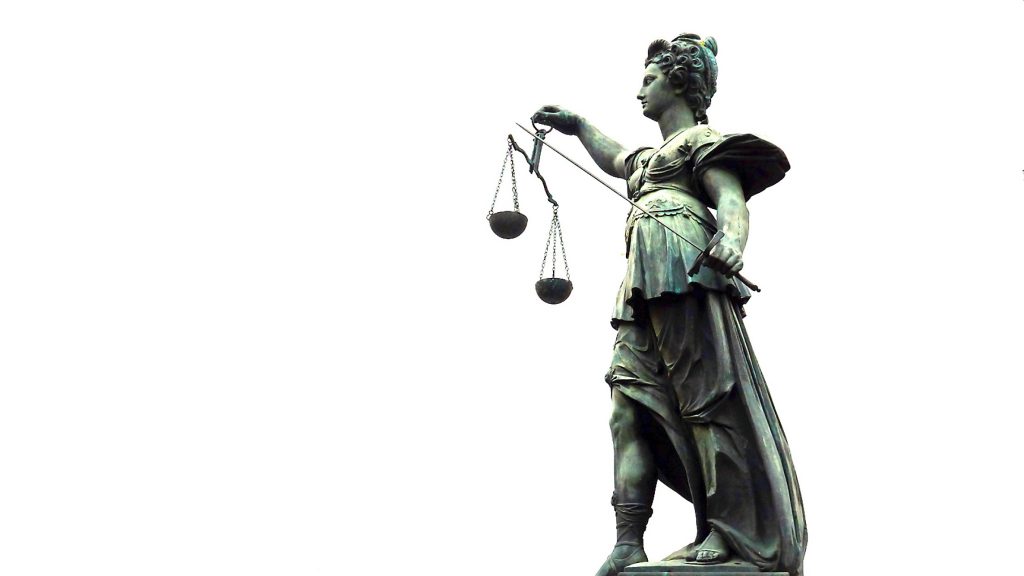In this patent infringement action, Intel filed a motion to dismiss the patent infringement claims for direct and indirect infringement pursuant to Fed.R.Civ.P. 12(b)(6). The plaintiff, VSLI Technology (“VLSI”), opposed the motion and argued that its complaint stated facts sufficient to state claims for relief.
In its motion, Intel asserted that VLSI’s claims for indirect infringement should be dismissed because there were insufficient allegations to establish that Intel was willfully blind to the existence of certain patents. The district court concluded that the allegations were insufficient since they were based solely on the allegation that Intel instructed its employees not to review patents from third parties: “The Court finds that Intel’s policy that forbids its employees from reading patents held by outside companies or individuals is insufficient to meet the test of willful blindness.”
Nonetheless, the district court determined that the claims should only be dismissed without prejudice to allow VLSI to re-allege the indirect infringement claims if discovery justified doing so. “Specifically, that the Court will dismiss VLSI’s claims of indirect infringement without prejudice to the refiling of these claims after discovery has been conducted. The Court intends to be very liberal in the discovery that it will allow VLSI to conduct. For example, VLSI may do discovery into its belief that Intel has been provided with notice of unasserted NXP patents, and the reasons for Intel’s failure to ascertain information about the patents asserted in this litigation. If after VLSI has taken discovery it decides to amend its complaint to make allegations of indirect infringement, it will be free to do so, subject to the provisions of Rule 11. Intel can then file a motion for summary judgment with respect to that issue if it wishes to do so.” Continue reading
 Patent Lawyer Blog
Patent Lawyer Blog


 In evaluating the motion, the district court explained that a “noninfringing alternative need not be on the market during the infringement period to factor into a lost profits analysis.” Wechsler v. Macke Intern. Trade, Inc., 486 F.3d 1286, 1298 (Fed. Cir. 2007). But the district court also noted that where an alleged non-infringing alternative was not on the market during the relevant time period, “a trial court may reasonably infer that it was not available as a non-infringing substitute at that time. The accused infringer then has the burden to overcome this inference by showing that the substitute was available.” Grain Processing, 185 F.3d at 1353 (citation omitted). Moreover, “[t]he acceptable substitute element, though it is to be considered, must be viewed with limited influence where infringer knowingly made and sold the patented product for years while ignoring the substitute.” Panduit, 575 F.2d at 1162, n.9.
In evaluating the motion, the district court explained that a “noninfringing alternative need not be on the market during the infringement period to factor into a lost profits analysis.” Wechsler v. Macke Intern. Trade, Inc., 486 F.3d 1286, 1298 (Fed. Cir. 2007). But the district court also noted that where an alleged non-infringing alternative was not on the market during the relevant time period, “a trial court may reasonably infer that it was not available as a non-infringing substitute at that time. The accused infringer then has the burden to overcome this inference by showing that the substitute was available.” Grain Processing, 185 F.3d at 1353 (citation omitted). Moreover, “[t]he acceptable substitute element, though it is to be considered, must be viewed with limited influence where infringer knowingly made and sold the patented product for years while ignoring the substitute.” Panduit, 575 F.2d at 1162, n.9. In analyzing the motion, the district court explained that it had previously “determined that this case was frivolous and that plaintiff had litigated it in an unreasonable manner, rending the exceptional and entitling defendant to an award of attorneys’ fees. None of those underlying facts have changed, and plaintiff does not argue that they have.”
In analyzing the motion, the district court explained that it had previously “determined that this case was frivolous and that plaintiff had litigated it in an unreasonable manner, rending the exceptional and entitling defendant to an award of attorneys’ fees. None of those underlying facts have changed, and plaintiff does not argue that they have.”
 In this patent infringement action, the defendants, Synergistics, Inc. (“Synergistics”), filed a motion to dismiss the complaint for lack of personal jurisdiction. The plaintiff, Parabit Systems, Inc. (“Parabit”), opposed the motion on the ground that it was not required to establish personal jurisdiction in the complaint and that Synergistics had failed to come forward with any evidence that the district court did not have personal jurisdiction over it.
In this patent infringement action, the defendants, Synergistics, Inc. (“Synergistics”), filed a motion to dismiss the complaint for lack of personal jurisdiction. The plaintiff, Parabit Systems, Inc. (“Parabit”), opposed the motion on the ground that it was not required to establish personal jurisdiction in the complaint and that Synergistics had failed to come forward with any evidence that the district court did not have personal jurisdiction over it. sidestep its own knowledge—and when it gained such knowledge—about the existence and functionality of Defendants’ customized BRAIN shock for Specialized. Instead, FOX Factory seeks to direct the court’s attention to Defendants’ discovery shortcomings. But in considering good cause, this court first focuses on whether the original deadline could have been met with reasonable diligence by Plaintiffs, not any bad faith by Defendants. Colorado Visionary Academy, 194 F.R.D. at 687. Using this framework, based on the record before it, this court is not persuaded that FOX Factory exercised adequate diligence to warrant amendment of its Final Infringement Contentions at this late juncture.”
sidestep its own knowledge—and when it gained such knowledge—about the existence and functionality of Defendants’ customized BRAIN shock for Specialized. Instead, FOX Factory seeks to direct the court’s attention to Defendants’ discovery shortcomings. But in considering good cause, this court first focuses on whether the original deadline could have been met with reasonable diligence by Plaintiffs, not any bad faith by Defendants. Colorado Visionary Academy, 194 F.R.D. at 687. Using this framework, based on the record before it, this court is not persuaded that FOX Factory exercised adequate diligence to warrant amendment of its Final Infringement Contentions at this late juncture.” In this patent infringement action, the defendant moved to dismiss the plaintiff’s complaint for the plaintiff’s failure to participate in discovery and for ignoring several court orders. The motion explained that dismissal sanctions were appropriate in the light of, among other things, the plaintiff’s failure to comply with court orders, sanction order and to appear for a court hearing.
In this patent infringement action, the defendant moved to dismiss the plaintiff’s complaint for the plaintiff’s failure to participate in discovery and for ignoring several court orders. The motion explained that dismissal sanctions were appropriate in the light of, among other things, the plaintiff’s failure to comply with court orders, sanction order and to appear for a court hearing. In this patent infringement action, the plaintiff, International Designs Corporation, LLC (“IDC”), moved to disqualify the counsel for defendant Hair Art Int’l, Inc. (“Hair Art”). IDC moved to disqualify counsel for Hair Art on the grounds that Hair Art’s counsel also represented/represents an entity named Halo Couture, LLC, a California limited liability company (“HC1”) and, potentially, Halo Couture, LLC, a Delaware limited liability company (“HC2”), which were apparently “sister companies” of IDC and share a common parent.
In this patent infringement action, the plaintiff, International Designs Corporation, LLC (“IDC”), moved to disqualify the counsel for defendant Hair Art Int’l, Inc. (“Hair Art”). IDC moved to disqualify counsel for Hair Art on the grounds that Hair Art’s counsel also represented/represents an entity named Halo Couture, LLC, a California limited liability company (“HC1”) and, potentially, Halo Couture, LLC, a Delaware limited liability company (“HC2”), which were apparently “sister companies” of IDC and share a common parent. In this patent infringement action, the defendant, Playmonster LLC (“Playmonster”), requested that the district court stay discovery during the pendency of its forthcoming dispositive motion. As part of its request, Playmonster contended that a dispositive motion “would be the most efficient resolution of this case,” and that a stay of discovery would promote judicial efficiency and conserve the Parties’ resources, which would include reducing the attorney’s fees that would be spent on the case should the dispositive motion be granted.
In this patent infringement action, the defendant, Playmonster LLC (“Playmonster”), requested that the district court stay discovery during the pendency of its forthcoming dispositive motion. As part of its request, Playmonster contended that a dispositive motion “would be the most efficient resolution of this case,” and that a stay of discovery would promote judicial efficiency and conserve the Parties’ resources, which would include reducing the attorney’s fees that would be spent on the case should the dispositive motion be granted.